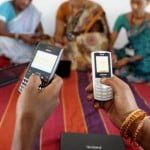
The day after reports emerged of a Tanzanian student being stripped by a mob on Sunday and having her car set on fire, the state response has lived up to expectations. Karnataka Home Minister G Parmeshwara, backed by the state police chief, on Thursday chose to deny that the girl was stripped and paraded naked. He also said that it was not a racial attack, merely a “response to an accident”. Bengaluru was not racist, explained Parmeshwara, as evident from that fact that foreign students chose to stay on in the city long after their visas had expired.
Apart from being rather breezy about a serious act of violence, the home minister’s statements are all kinds of obtuse. The accident to which he referred had involved a Sudanese student who had run over a resident. Parmeshwar missed the glaring fact that the Tanzanian woman was targeted because she was of the same race. It also takes a special kind of elan to speak of Bengaluru’s cosmopolitanism and foreign students overstaying their welcome in the same breath.
The Congress home minister’s comments reveal the unthinking, unchallenged racism that thrives in our political class. Similar incidents in the past have shown political parties across the spectrum at their worst.
A dismal record
Remember Goa? In 2013, after a Nigerian man was murdered and members of the community held protests, it invited a backlash from residents. As they launched a social boycott against Nigerian students and the government ordered a crackdown on foreigners living in the area, Manohar Parrikar, then chief minister of the state, denied that there was racism in Goa. This when official documents presented to the legislature used the word “negro” in a description of the incident and ministers in the Bharatiya Janata Party state government said Nigerians were like a “cancer” in society.
Parrikar apologised for the use of the word “negro”, though he added a bizarre non-sequitur: “Negro” was also the name of a river in the Amazon Basin. By then, the Nigerian High Commission had taken strong exception to the political response, and the incident had sparked off a diplomatic row.
But this was not the only time politicians encouraged popular stereotypes about black people, who, many Indians believe, are prone to criminality, aggression and have predatory sexual appetites. Many have actively backed the idea that their presence damage the social fabric of respectable neighbourhoods. Take Somnath Bharti, former law minister in the Aam Aadmi Party government in Delhi. In 2013, Bharti actually led a midnight raid on the apartment of Ugandan women living in Khirki Extension in South Delhi, acting on rumours that they were involved in drug trafficking and prostitution. It was arguably the same spirit of vigilante justice that animated the marauding crowd in Bengaluru.
It doesn’t stop there. In casual remarks and in conspiratorial jokes, politicians have picked on people for the colour of their skin. Whle AAP leader Kumar Viswas joked about “kaali peeli”, or dark, Mayali nurses, Union Minister of State Giriraj Singh speculated that if Rajiv Gandhi had married a Nigerian, she would not have been accepted by the Congress.
Who’s listening anyway?
Perhaps it is too much to expect that the bigotry spread across Indian society will not travel to its governments and leaders.
Besides, the constituency against such prejudice is so small (not much more than a handful of people outraging on social media) but the consensus behind it so large (baying mobs, landlords in tony residential neighbourhoods, people sniggering on the metro). Far more profitable, in political terms, to speak the language of racism. Political correctness never won any leader an election.
[“source-scroll”]










